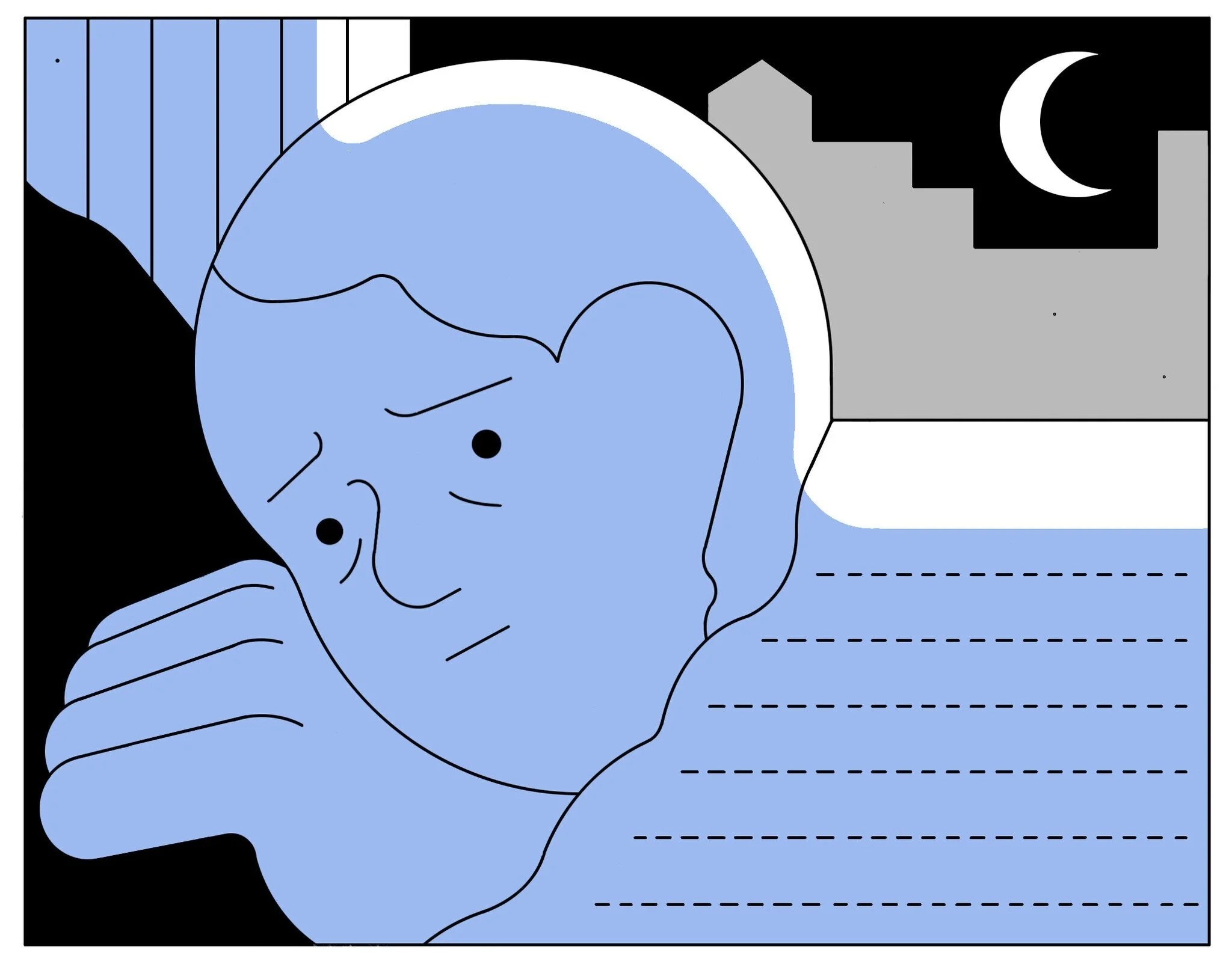“Ye old wise guy Plato once said, we should think of the mind like a cage full of fluttering birds. In order for the birds to settle (and stop crapping all over the place), we need moments of stillness. ”
For those of us with anxiety, however, moments of stillness - like those we find at night when our head hits the pillow - can be anything but settling.
Why?
Most often, bedtime is the first moment of the day when we are alone with our thoughts, feelings, and bodily sensations. At night, we are free of the daytime distractions we can use to keep excessive worrying at bay.
With the “noise” of daily life turned down at night, the difficult thoughts and feelings we pushed down during the day come creeping back in. Amplified by the silence and stillness, this triggers a cycle where our thoughts lead to anxiety, our anxiety disrupts our sleep, and our disrupted sleep causes even more anxiety.
For example, we can kind of compare it to spending the whole day avoiding an upset partner (in this case your brain)…and now BOOM. It’s bedtime baby, no more distractions. They want to talk.
So what can we do about it? We want sleep dammit!
First we need to understand the underlying anxiety cycle that shows up at night. Anxiety is created by a perception of threat - a sense that something bad is going to happen/has happened. If we find ourselves in bed preoccupied with our thoughts - attaching to all those negative stories we often tell ourselves - we create a very real perception of threat in our minds. The body (via the sympathetic nervous system) naturally has to respond. It pumps our body full of stress hormones sending the message that now, with a threat on the horizon, it is NOT sleepy time.
This is how we find ourselves not only on high alert and unable to sleep, but also – thanks to the silence and stillness that night brings - acutely aware of all the uncomfortable and distressing physical symptoms of anxiety: the rapid heartbeat, increased breathing rate, muscle tension, nausea, tightness in the chest, and an overall feeling of being “wired”.
To make matters worse, we often then start worrying about not being able to sleep: “What happens if I can’t ever get to sleep? Will I get sick? Will I be overtired? What if I can’t function properly tomorrow at work? Will I lose my job?” with such thoughts signalling yet another layer of threat, and starting the cycle of anxiety all over again.
Now lets talks about the cure.
We need to stop running away from our difficult thoughts and feelings during the day. Going back to our analogy of ignoring the upset partner. Wouldn’t it have been better to just acknowledge that they’re upset and choose a time to talk that suits better than the dead of night? Of course it is. The same goes for our anxious thoughts and feelings.
“Distraction and keeping busy can be a useful tool for managing anxiety. But when we go overboard and spend our entire day in suppression mode, this strategy will bite us in the ass at night”
Instead, we could try carving out a few minutes each day to be still and focus on what is disturbing us. By creating another time for stillness and ‘looking it in the eye’ during the day, our worries lose their bite and we’re less likely to be plagued with anxiety come bedtime. Our favourite ways to be still and focus on our anxiety is called R.A.I.N Created by Psychologist Tara Brach, it is an effective, quick and kind way to address painful/scary thoughts and feelings
Also, given that sleep is dependent on our ability to unwind and relax (via activation of the parasympathetic nervous system), progressive muscle relaxation before bed can also be super helpful. This involves tensing and then relaxing each major muscle group sequentially (literally head to toe) in order to induce a whole-body state of relaxation. Again we can notice the theme - focus on the feelings/sensations in body before it is bedtime. There are heaps of videos and guided meditations online to show you how to do this. One of our faves can be found on YouTube if you search: Progressive Muscle Relaxation For Management of Anxiety and Stress (with Music)
We also know that working with a psychologist to identify and address unhelpful thought patterns triggering sleep-related anxiety can be beneficial. Yes we are biased! But there is nothing quite like having a set time and safe space to compassionately explore what’s keeping you up at night.





